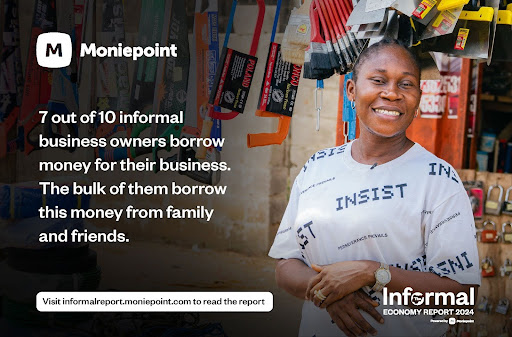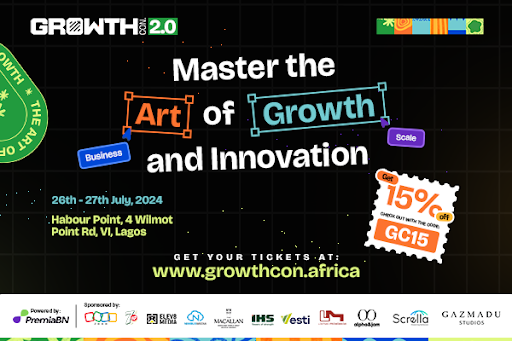

Good morning ☀️
Before you dive into today’s edition, please take a minute or two to move TC Daily from your Promotions folder into your Main/Primary folder so you don’t miss any of our important coverage. On mobile, click the button on the top-right corner and select “Move”, and on desktop, just drag and drop this email. Thank you!
Mercury will close accounts of Nigerian startups on August 22
Mercury Bank caused an uproar yesterday after announcing that it will no longer provide banking services to its customers in 37 countries, including Nigeria.
The San Francisco-based digital bank that became a lifeline for African startups after Silicon Valley Bank’s collapse, cited “recent changes in how it determines account eligibility” as the sole reason it is parting with customers in these countries.
According to Mercury, these users have only 30 days to find another bank to move their funds—which looks like an unrealistic timeline to move large sums of money from one bank to another, bearing in mind the multi-layered process to go through verification, compliance, and proof-of-fund processes.
Founders with Mercury accounts have reacted to the impromptu change on X, slamming Mercury for poor customer service.
But for Nigerian founders, the wound cuts deeper. Ngozi Chukwu reported for TechCabal that, “Banks like Mercury have become very important to Nigerian tech startups that raise dollar funding from foreign and local investors.”
It is tougher for these founders as receiving foreign payments, or making payments abroad has historically been a hassle. Tried methods in the past with neobanks like PayPal have only led to restrictions due to “local financial regulations”.
Despite the mounting frustrations, affected users have swung into action, switching to alternative banking providers like Verto, Cleva or Raenest. One banking-as-a-service founder in Nigeria even rallied founders to build the “Mercury for African businesses” in his post.
Other African countries were also affected: The 13 affected African countries include Burundi, Cameroon, DR Congo, and Zimbabwe. Many are on the Financial Action Task Force (FATF) Greylist, adding to compliance concerns.
Read Moniepoint’s 2024 Informal Economy Report

7 out of 10 informal business owners borrow money for their business. Click here to find out more about Nigeria’s informal economy and credit.
Zimbabwe to cash in on lithium rush
Lithium, the lightweight metal powering our tech-driven world, is in high demand. From smartphones to electric vehicles, this critical mineral is a key component in rechargeable batteries. The majority of lithium is currently sourced from brine deposits in South America’s “Lithium Triangle”—Chile, Argentina, Bolivia—and from hard rock mines in Australia. As the global push for electrification accelerates, the hunt for new lithium reserves is intensifying.
Zimbabwe digs in: Zimbabwe is aiming to cash in on the lithium boom. State-owned Kuvimba Mining House has inked a $310 million deal with unnamed British and Chinese investors to build a lithium concentrator at the Sandawana mine. This facility will be the first step in turning raw ore into lithium compounds, which are further processed into battery-grade materials.
The facility is expected to be operational within 18 months, with annual production set at 600,000 tons of lithium concentrate. The agreement is also set to conclude after six years, aiming to solidify Zimbabwe’s position in the global lithium supply chain.
Currently, Zimbabwe exports unrefined lithium concentrate, primarily to China for final processing. The new concentrator aims to add value to the country’s mineral resources and create jobs. Kuvimba is also exploring partnerships for its gold mines, seeking $150 million to expand operations.
While the project promises economic benefits, it remains to be seen if Zimbabwe can navigate the complexities of mining and processing lithium while ensuring environmental sustainability.
Collect payments anytime anywhere with Fincra

Are you dealing with the complexities of collecting payments from your customers? Fincra’s payment gateway makes it easy to accept payments via cards, bank transfers, virtual accounts and mobile money. What’s more? You get to save money on fees when you use Fincra. Get started now.
Village Capital invests $850,000 in two African agritech startups
Africa has 60% of the world’s uncultivated arable land. For decades this land has not been put to good use. The continent remains a net importer of food due to challenges faced by small-holder farmers who produce most of its food. These farmers need more access to credit for seeds and fertilizers to boost production. They also struggle with an inability to sell their produce due to poor infrastructure and market information; and wastage of food produced due to lack of proper storage and transportation.
Agritech isn’t getting enough attention: While tech-driven agricultural startups have put up a fight against these challenges, they have done so with very little funding. Agritech startups on the continent received 4.4% ($95.1 million) and 8.6% ($59.9 million) of the total funding raised in 2021 and 2020 respectively.
Village Capital, a global nonprofit organisation focused on early-stage investment is giving two agtech startups new ammunitions to keep in the race. The organisation has backed Aquarech (Kenya) and Coamana (Nigeria), two African tech agritech startups. Both startups will receive $350,000 and $500,000, respectively.
What Aquarech does: The startup operates as a B2B and B2C company which offers fish farmers a buy now pay later solution (BNPL) for fish feed. Aquarech also provides training and other precision agriculture tools that help fish farmers learn about best practices and improve incomes.
Coamana’s goal: Coamana provides a marketplace, Amana Market, where farmers and traders can sell their products, get loans, and access real-time market prices and purchase requests.
Coamana and Aquarech are Village Capital’s latest investments in Africa. The firm which has invested in over 150 startups globally made this investment as part of its Reducing Inequalities Investment Facility, backed by FMO’s MASSIF Fund.
Shop, Party, and Play with Bumpa and Paystack

Join us at the Bumpa Pop-up this Saturday, July 27th for a day of fun, food, and amazing deals 🛍️ Get a free ticket here →
Nigeria directs telecoms to conduct billing audits
If you work remotely, then you likely spend a lot of money on data and calls. Though Nigeria still has one of the cheapest data and voice rates in Africa, the Nigerian Communications Commission (NCC) still wants all telecoms to review their billing.
This move comes in response to frequent consumer complaints about data depletion and aims to ensure transparency in telecom services.
The commission is also working on simplifying tariff plans to make them more understandable for consumers. These initiatives are part of a broader effort to improve the quality of experience for telecom users in Nigeria, covering all aspects from network selection to customer support.
What’s the big deal? These efforts are in sync with Nigeria’s Minister of Communications, Innovation and Digital Economy, Bosun Tijani’s, set target for improving service quality. The NCC aims to increase the average telecom Quality of Service (QoS) score for the four major mobile network operators (MNOs) from 81.25% to 90.6% by the end of 2024.
NCC has also been tasked with increasing broadband penetration to 70% by 2025, and providing coverage for 80% of the population by 2026, with a particular focus on underserved rural areas.
These efforts are welcome developments to balance consumer protection with industry growth—bearing similar markings to adjacent commissions like the FCCPC that has been battling Meta over claims of consumer privacy breaches on WhatsApp.
However, MNOs are still agitating, arguing that their prices, now overdue for increments, haven’t been reviewed in the last 11 years, despite strong inflation headwinds in the country.
Master growth at GrowthCon

GrowthCon is back bigger & better! Come explore proven strategies, tactics & success stories of growth & innovation in Africa via curated masterclasses, workshops & case studies led by top growth leaders. This year also includes the Executive Track, exclusive to business leaders & senior execs. Get your tickets now!
- You can still get an early bird ticket to the second edition of TechCabal’sMoonshot Conference! From October 9–11, 2024, at the Eko Convention Centre, Lagos, Nigeria, you can join Africa’s biggest thinkers and players like Iyin Aboyeji, Wiza Jalakasi, June Angelides, Kola Aina on a global launchpad for change. If you want to join these stakeholders in Africa’s tech ecosystem for three days of insightful conversations, then get an early-bird ticket to Moonshot 2024 at 20% off.
- The Nigeria Fintech Forum is set to hold its third edition on July 25, 2024, at the Civic Centre, Victoria Island, Lagos. Nigeria Fintech Forum plays host to the most senior leaders across Nigeria’s fintech and banking, uniting industry stakeholders who are defining the future of the ecosystem, If your work resonates with fintech, payments or banking, This is where you should be. Get a ticket here.
- JICA will organize an event related to Nigeria’s startup ecosystem in Japan on Sep 5th 2024. Find out more here.
You should definitely read these 👇🏾
Written by: Emmanuel Nwosu & Faith Omoniyi
Edited by: Muyiwa Olowogboyega & Timi Odueso
Want more of TechCabal? Sign up for our insightful newsletters on the business and economy of tech in Africa.
- The Next Wave: futuristic analysis of the business of tech in Africa.
- Entering Tech: tech career insights and opportunities in your inbox every Wednesday at 3 PM WAT.
- TC Scoops: breaking news from TechCabal
P:S If you’re often missing TC Daily in your inbox, check your Promotions folder and move any edition of TC Daily from “Promotions” to your “Main” or “Primary” folder and TC Daily will always come to you.
























